Best ways to clean vinyl flooring - the dos and don’ts to consider if you have vinyl in your home
There are certain things you can and can’t use on vinyl
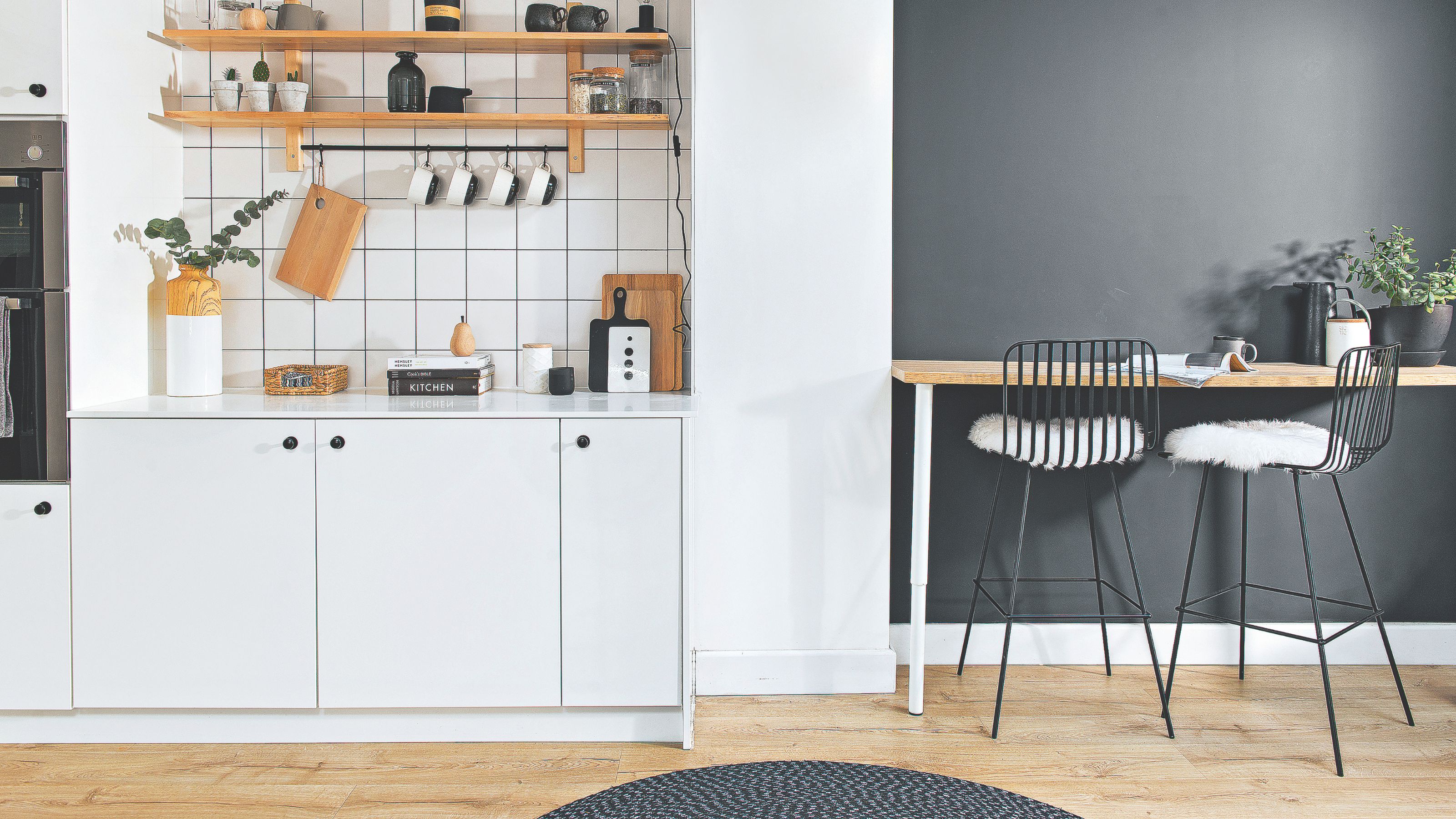

Cleaning is key to good-looking floors year-round. However, different flooring types have different cleaning requirements and may need specific products. That's why it’s important to understand the best ways to clean vinyl flooring to keep it looking its best.
Of course, there are many flooring ideas out there, but vinyl is an extremely popular choice for those looking for an attractive, hard-wearing and durable option that’s easy to lay yourself. It’s also extremely versatile, offering homeowners and renters alike the chance to lay everything from colourful vinyl tiles to wood-effect planks. You'll need to care for vinyl to get the most out of it, though - and this includes regular cleaning.
As Liam Cleverdon, Flooring Trends Expert at Flooring King, explains, ‘Understanding how to clean vinyl correctly is vital for ensuring the cleanliness and longevity of the floor.’
1. Start by giving it a vacuum
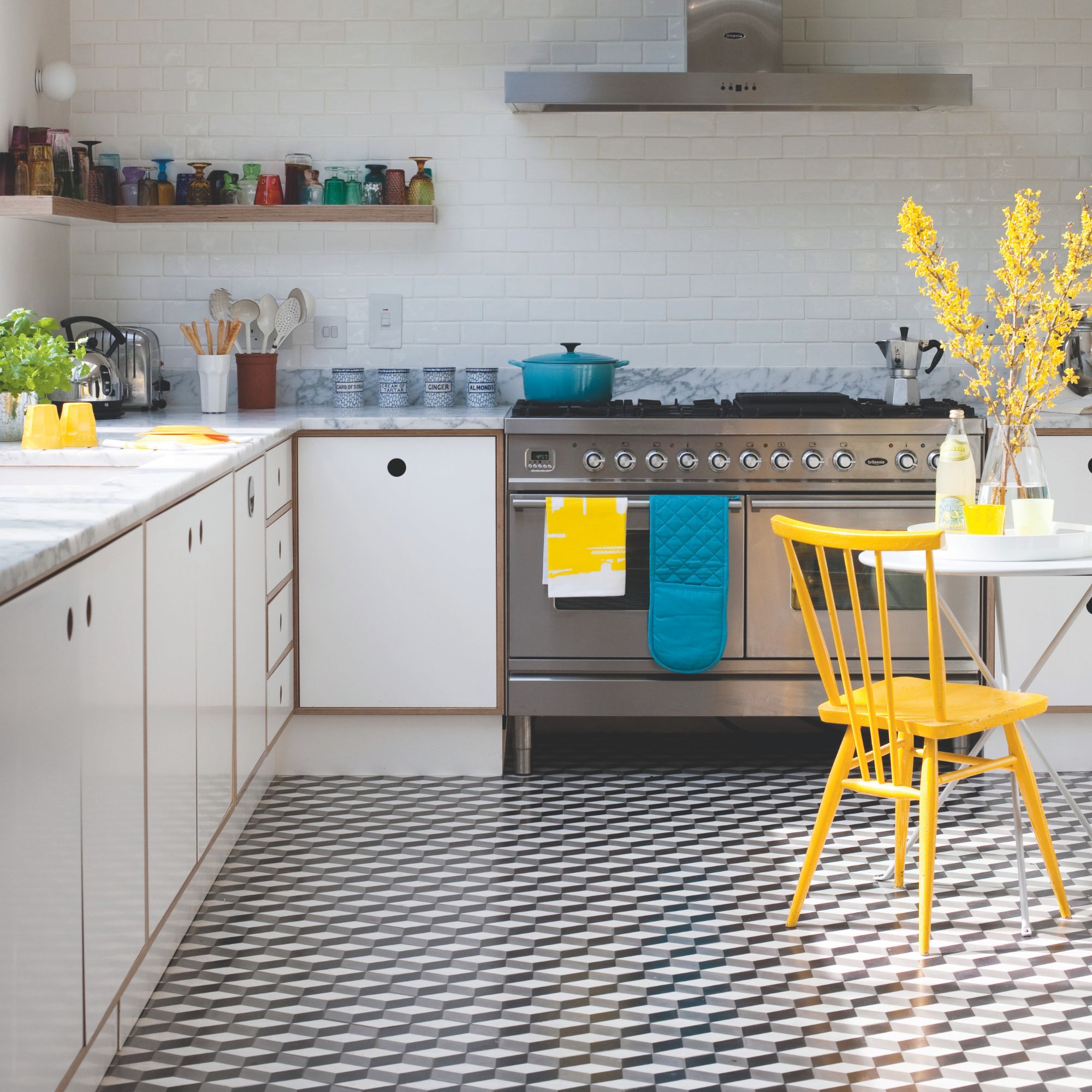
No matter your flooring type, vacuuming is always a good first step. Whether you’re cleaning carpet, floor tiles or vinyl flooring, one of the best vacuum cleaners can come in extremely handy.
Paul Hambidge, Managing Director at Factory Direct Flooring, advises, ‘Run a vacuum cleaner over your vinyl floor to remove as much dust and debris as you can.’ This will ensure you can move on to the next steps without anything getting in the way.
If you can, opt for a vacuum cleaner that has a dedicated cleaning head for hard floors to prevent scratches and dirt build-up.
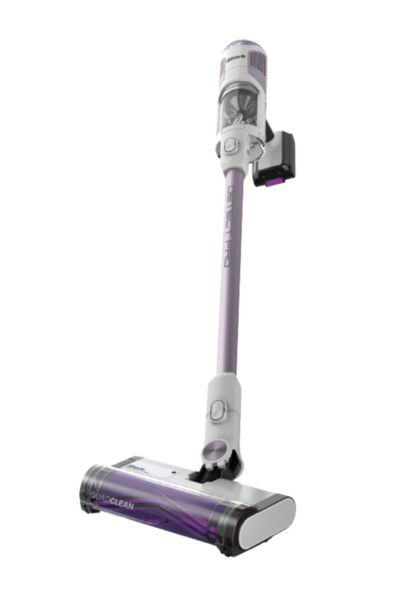
2. Give it a mop
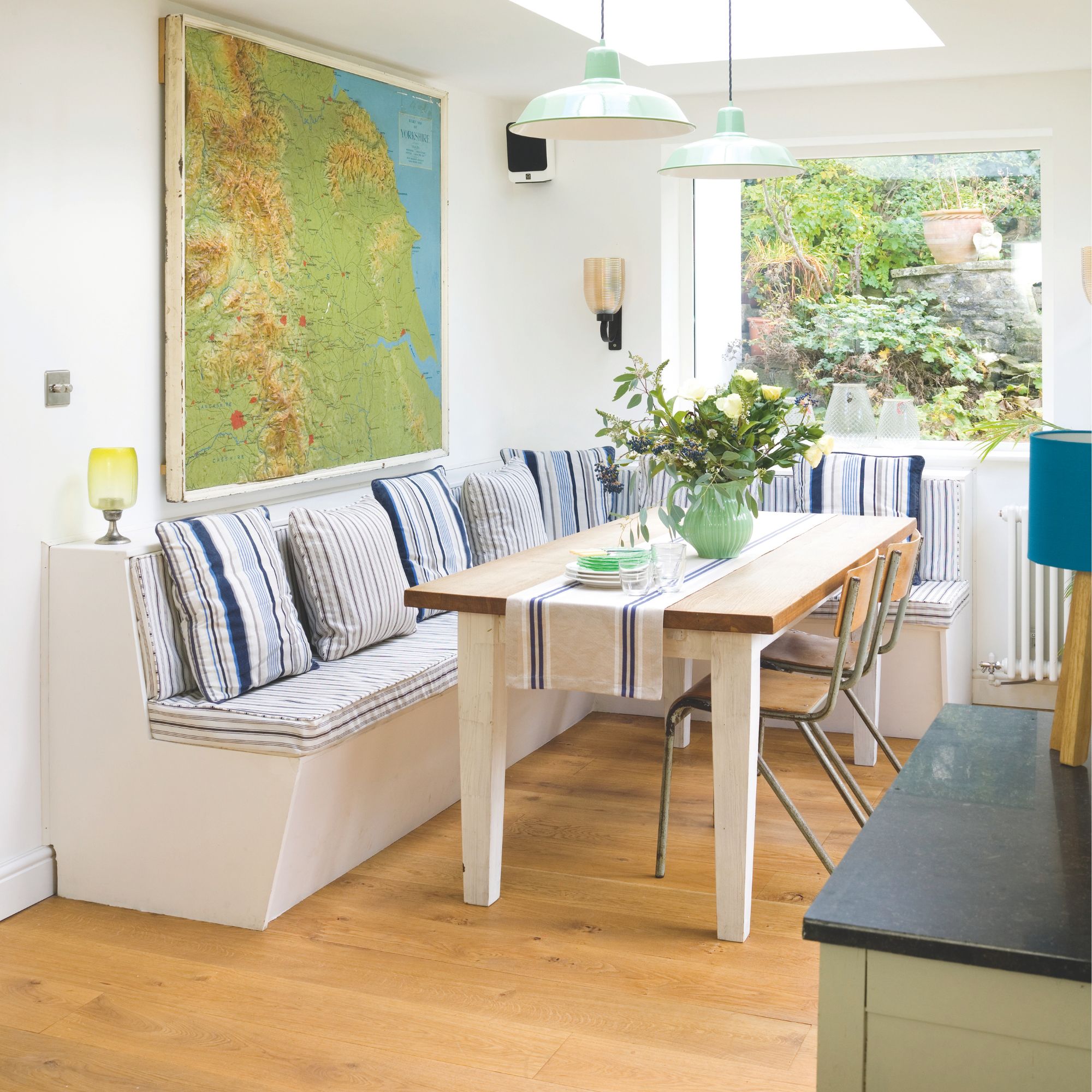
With any type of hard flooring, it’s well worth having one of the best mops at your disposal. When you’ve removed large debris from your vinyl flooring with your vacuum cleaner, you can then give it a mop to sanitise it and get into the smaller nooks and crannies.
Get the Ideal Home Newsletter
Sign up to our newsletter for style and decor inspiration, house makeovers, project advice and more.
For this step, Paul suggests using a mixture of mild detergent with water. He says, ‘In fact, during an experiment we commissioned, we found this method cut bacteria on vinyl floors by 97% on average.’
And while you can mop your vinyl flooring in any way that works for you, Paul advises everyone to follow a specific technique for the best results. ‘Using a well-wrung-out mop, begin mopping at the edges of the room and work your way to the middle, moving the mop in a figure-of-eight but keeping contact with one side of the mop before flipping it over,’ he says. ‘When you can see the mop head is dirty, rinse it in clean water before repeating the process. When you're finished, use a soft towel to completely dry your floor.’
This last part is crucial, as you want to stop your vinyl from getting too wet during cleaning. If moisture gets into the cracks and seams, it can cause the vinyl to curl or create bumps. This can cheapen the overall look and even be a trip hazard.
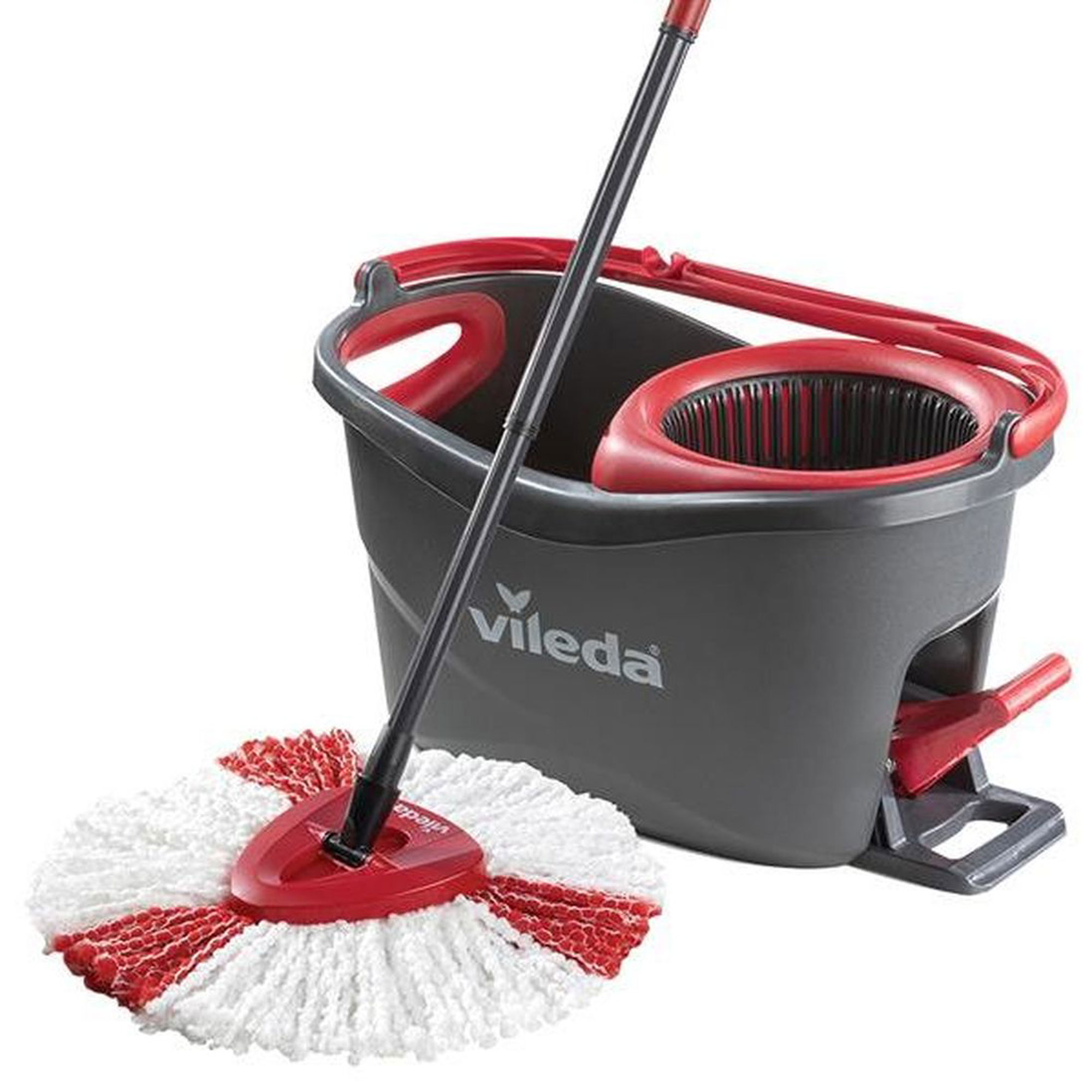
3. Make it shine with white vinegar
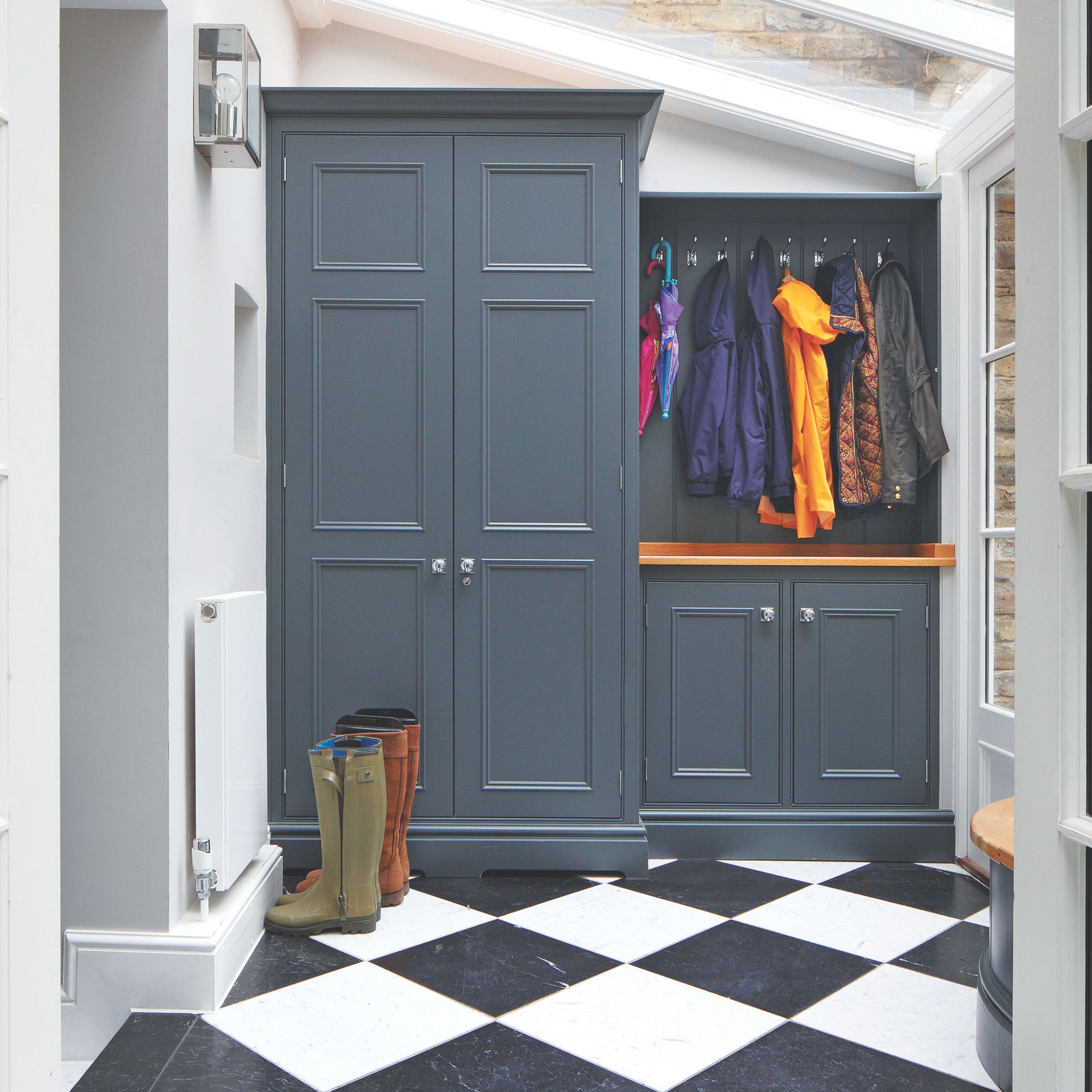
If you want to bring back the shine of your vinyl flooring - or you just want to ensure that it’s as clean as possible - you can then switch up your solution of water and detergent for a mixture of water and white vinegar.
Paul explains, ‘Using a mix of white vinegar and water is particularly effective for cleaning vinyl floors. Our experiment showed this method cut germs on vinyl by 94%. It also means you're using fewer chemicals in your cleaning routine, and it's pretty cheap too. Not only that, white vinegar is also great for achieving a gleaming finish since it never leaves smudges or marks.’
Once again, though, you must rinse with clean water and dry your vinyl floor after cleaning with vinegar to remove any leftover residue or moisture.
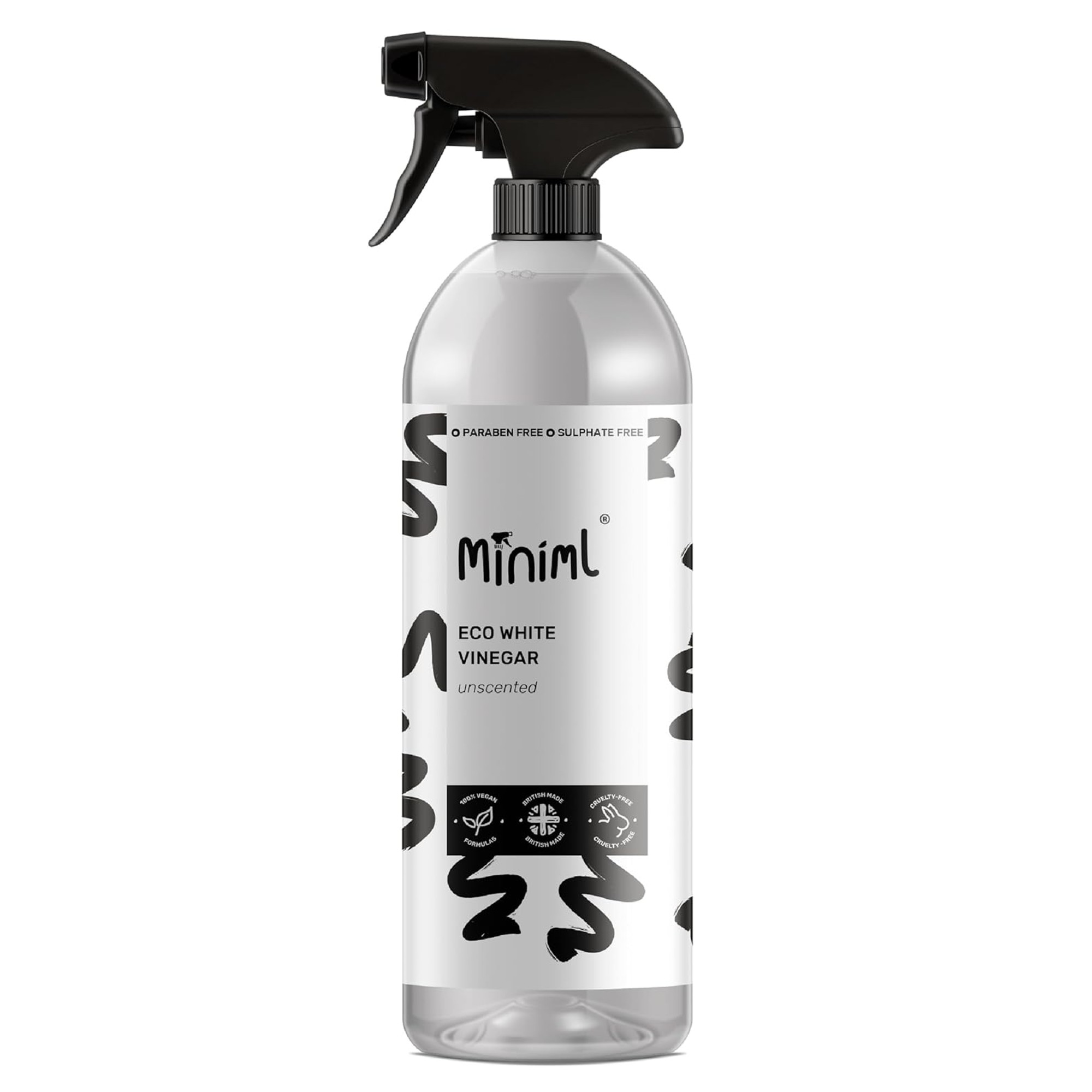
White vinegar is a must if you want your vinyl floors to shine, and it also has natural antibacterial properties which is handy in kitchens and bathrooms.
4. Tackle tougher stains
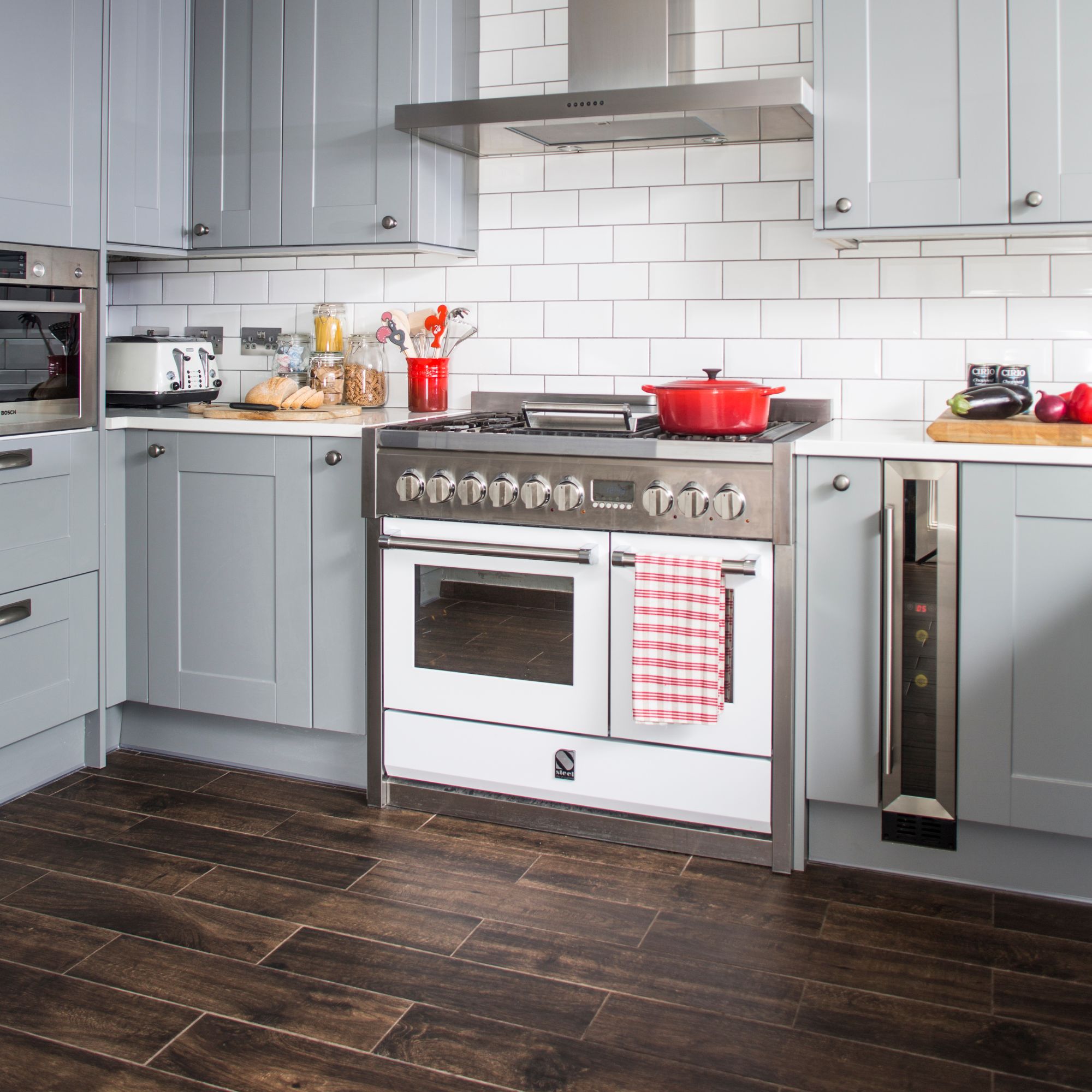
If the above steps haven’t been enough to tackle ingrained dirt on vinyl, you can add another step into the mix. That includes using baking soda - also called bicarbonate of soda - to tackle these tougher stains.
While there are many things you should never clean with bicarbonate of soda, vinyl isn’t one of them. You should use this sparingly, though.
Paul warns, ‘For tougher stains on vinyl, you can occasionally try bicarbonate of soda mixed with warm water. But don't rely on this as your regular, go-to cleaning method for vinyl floors. That's because it can damage the clear layer that protects vinyl flooring and make it appear 'cloudy.’
If you’re looking for another way to really get into the nitty gritty of your vinyl flooring, Florring King's Liam Cleverdon has another option. He says, ‘Rubbing alcohol and a soft-bristle brush is effective for targeting tough stains such as ink, paints, or lipstick marks - however, it’s crucial to avoid brushing too hard, as this can damage the floor, leaving behind scratch marks.’
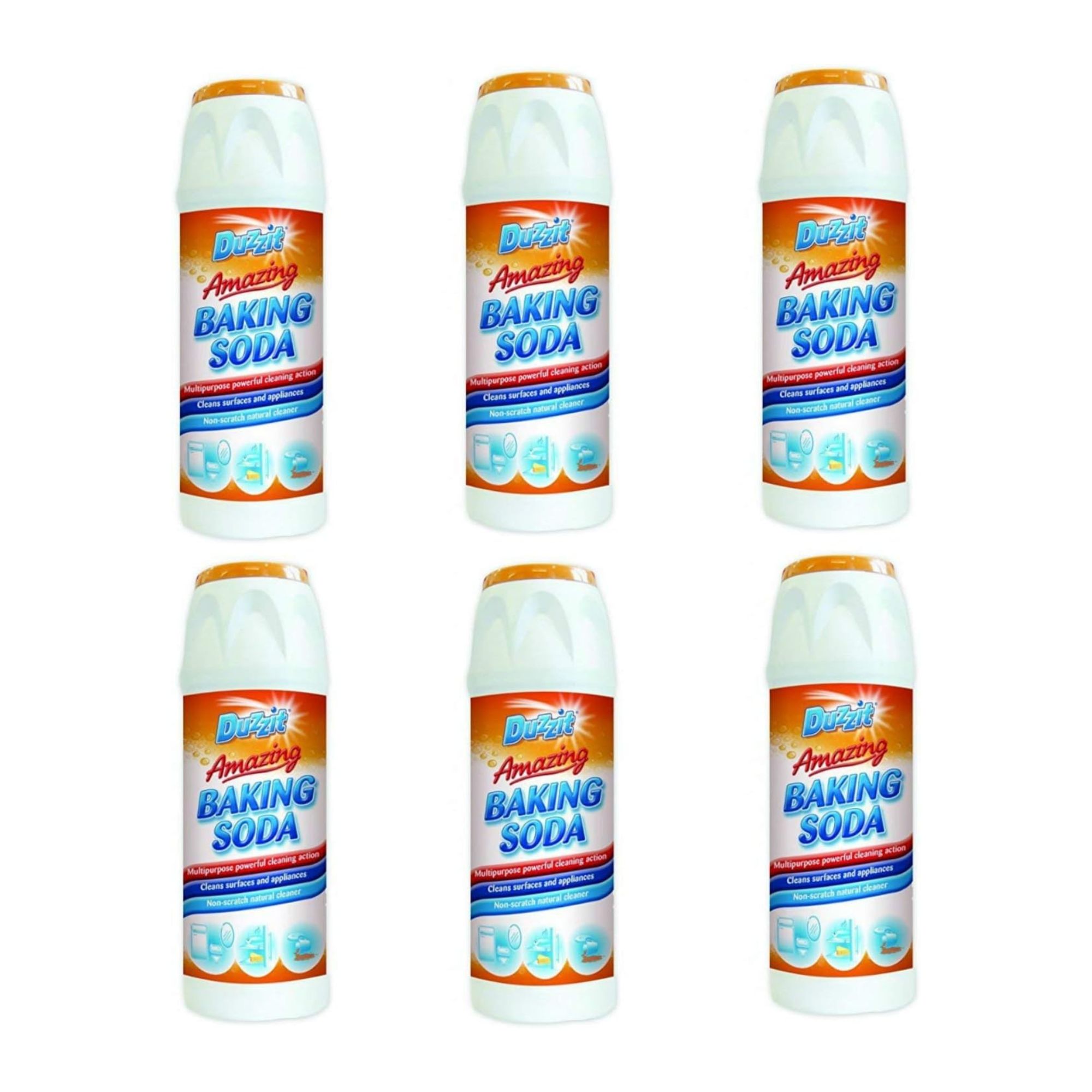
As baking soda is one of the best household cleaners out there, it's always worth stocking up. Especially if you want to clean vinyl flooring.
5. Repeat the process
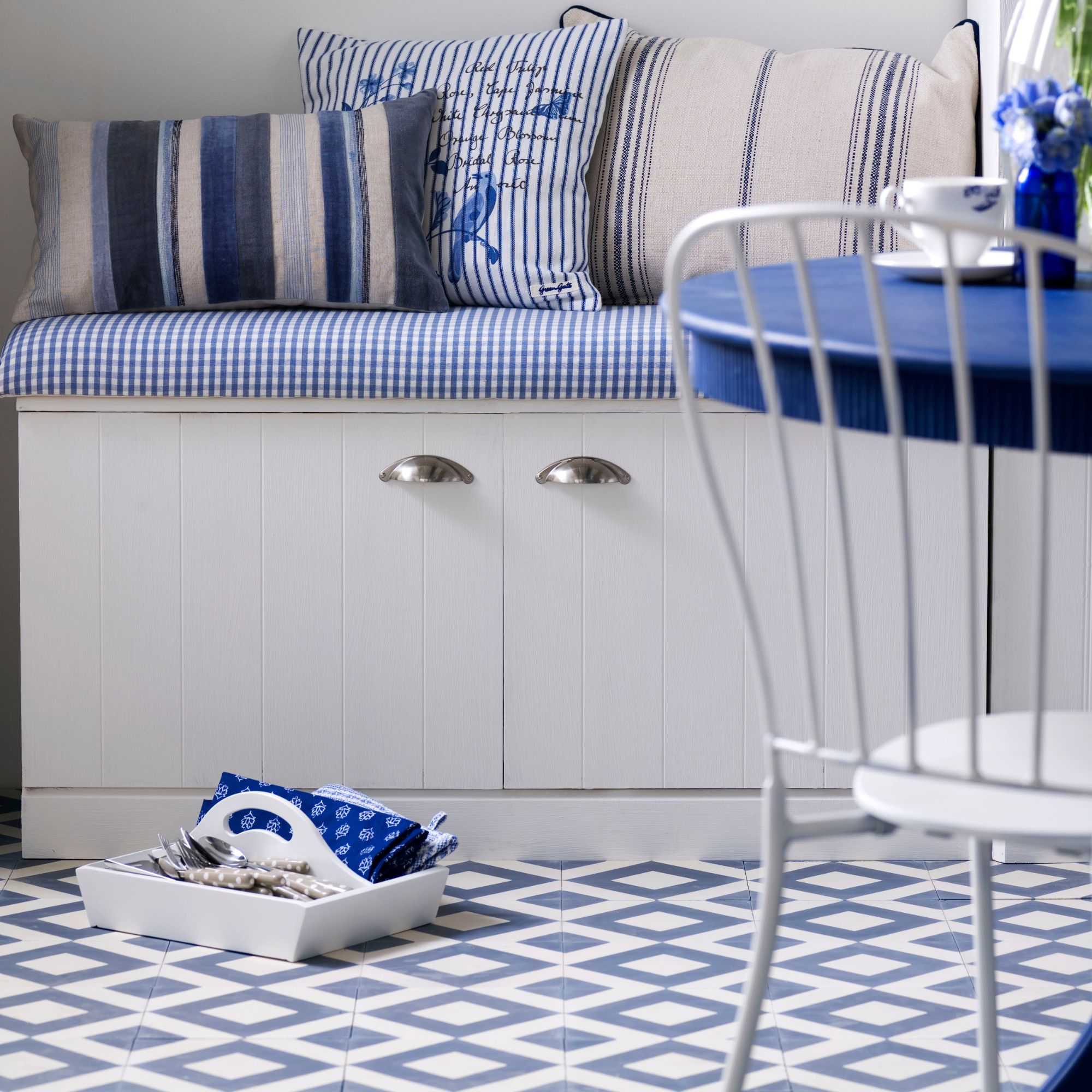
By utilising all of the best ways to clean vinyl flooring, you should be left with clean, shining floors. But this isn’t a one-stop shop, and you need to repeat the process regularly if you want to maintain this cleanliness.
Cleaning vinyl floors in high-traffic areas should be a part of your daily cleaning schedule, but every few days should be enough in lower-traffic areas. Make sure you complete this cleaning schedule in the right order, though.
Paul says, ‘Make sure that when you're cleaning your home, you tackle your flooring last. That's because when you're cleaning around light fixtures and other furniture, some of the dust and debris from those surfaces will inevitably land on your floor, so clean your floor last.’
And while it may be easy to grab the chemicals in your cleaning cupboard to clean your floors, Liam advises against this. ‘Opting for natural products is a much safer alternative to potentially damaging cleaners,’ he says. ‘Before using any product, it’s best to check its suitability for the particular flooring type. This can prevent any damage and ensure the floor remains in top condition.’
FAQs
What can ruin vinyl flooring?
Many things can ruin vinyl flooring. These include:
- Prolonged exposure to moisture.
- Prolonged exposure to sunlight.
- Strong chemical cleaners.
- A large build-up of dust.
- Fabric conditioner.
- Heavy furniture.
Can I use a steam mop on vinyl floors?
No, you should avoid using a steam mop on vinyl floors. That’s because vinyl flooring cannot cope with the excessive heat and moisture that comes from this appliance, and a steam mop can cause irreparable damage to it.
For starters, steam and heat can cause the vinyl to warp and bubble which will ruin the aesthetic and create a trip hazard. Alongside this, the excess moisture can also lead to mould and mildew growth, which is virtually impossible to remove.
Because of this, you should focus on using a vacuum cleaner followed by a non-steam mop to clean vinyl flooring.

Lauren Bradbury has been the Content Editor for the House Manual section since January 2025 but worked with the team as a freelancer for a year and a half before that. She graduated with a Bachelor’s degree in English and Creative Writing from the University of Chichester in 2016. Then, she dipped her toe into the world of content writing, primarily focusing on home content. After years of agency work, she decided to take the plunge and become a full-time freelancer for online publications, including Real Homes and Ideal Home, before taking on this permanent role. Now, she spends her days searching for the best decluttering and cleaning hacks and creating handy how-to guides for homeowners and renters alike, as well as testing vacuums as part of her role as the Ideal Home Certified Expert in Training on Vacuums, having spent over 110 hours testing different vacuum models to date!
-
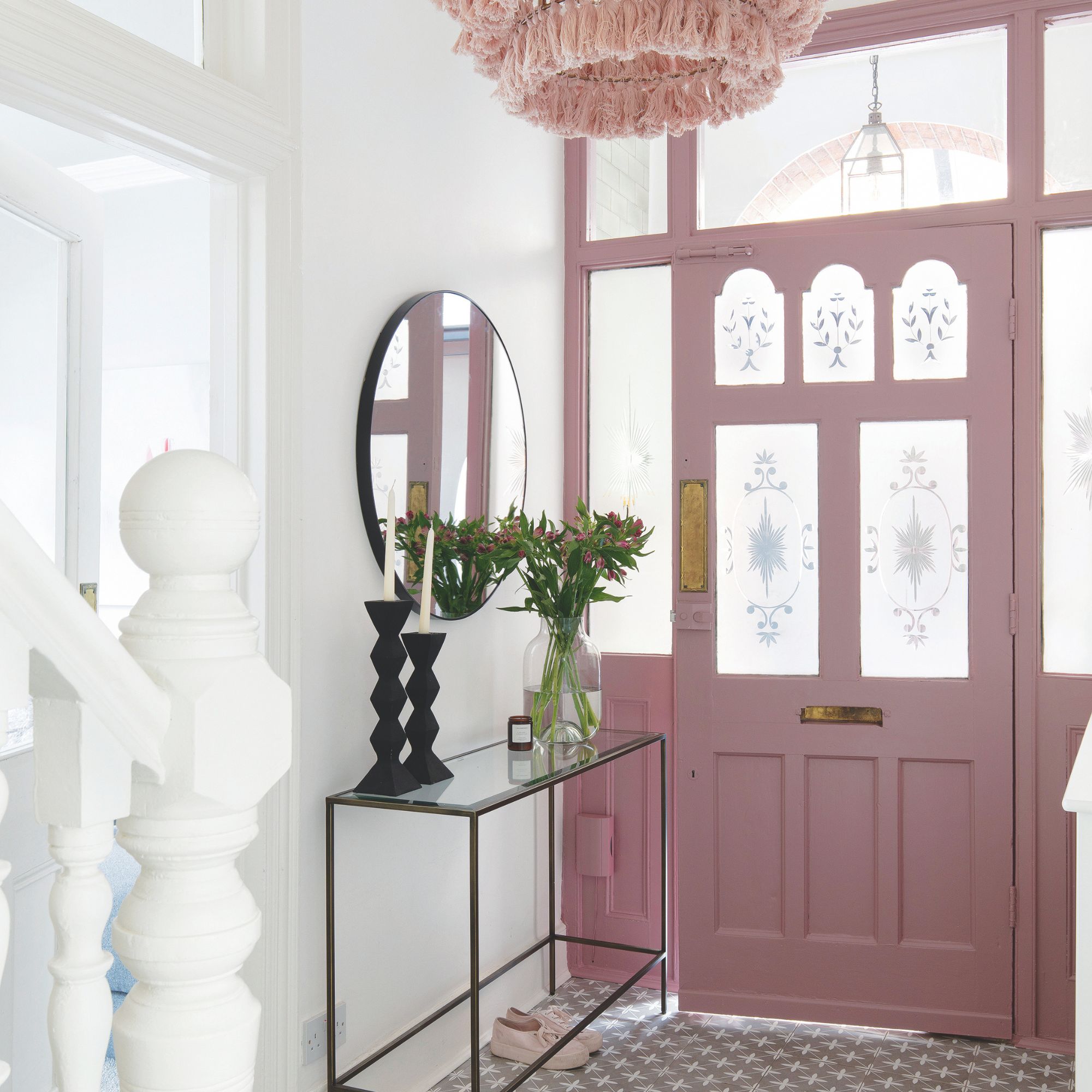 Should your front door colour match your hallway? Interior experts reveal 3 reasons why it should (and 3 reasons it shouldn't)
Should your front door colour match your hallway? Interior experts reveal 3 reasons why it should (and 3 reasons it shouldn't)Are you team matching or contrasting?
By Ellis Cochrane
-
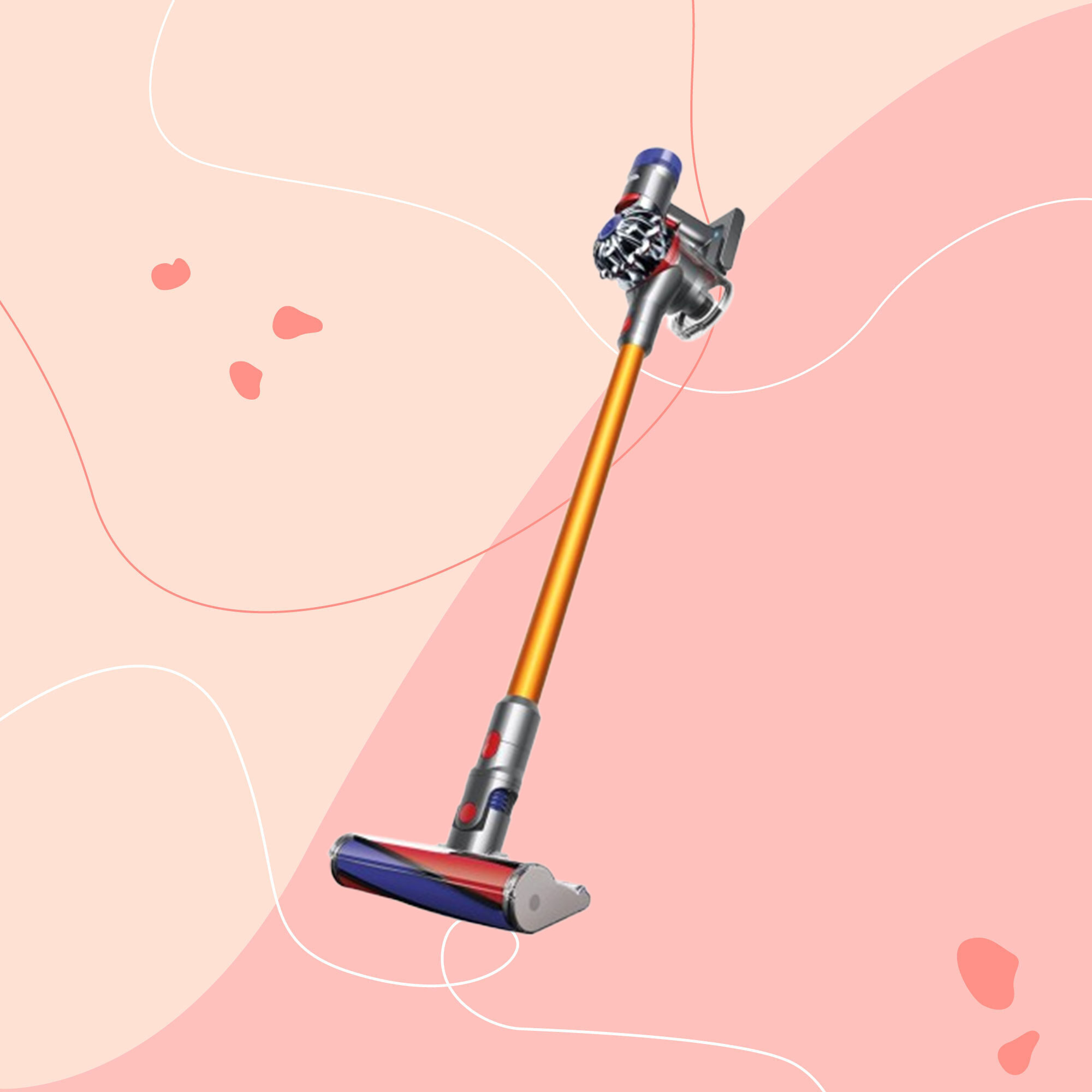 This £200 limited-time discount makes this Dyson vacuum cheaper than I’ve ever seen it - run don’t walk to Argos for this bargain
This £200 limited-time discount makes this Dyson vacuum cheaper than I’ve ever seen it - run don’t walk to Argos for this bargainIt's the most affordable Dyson on the market right now
By Lauren Bradbury
-
 Martin and Shirlie Kemp’s pastel flower beds has given their Victorian renovation a romantic look - how you can get the look
Martin and Shirlie Kemp’s pastel flower beds has given their Victorian renovation a romantic look - how you can get the lookTheir pastel garden is the cottage garden inspo you've been looking for
By Kezia Reynolds
-
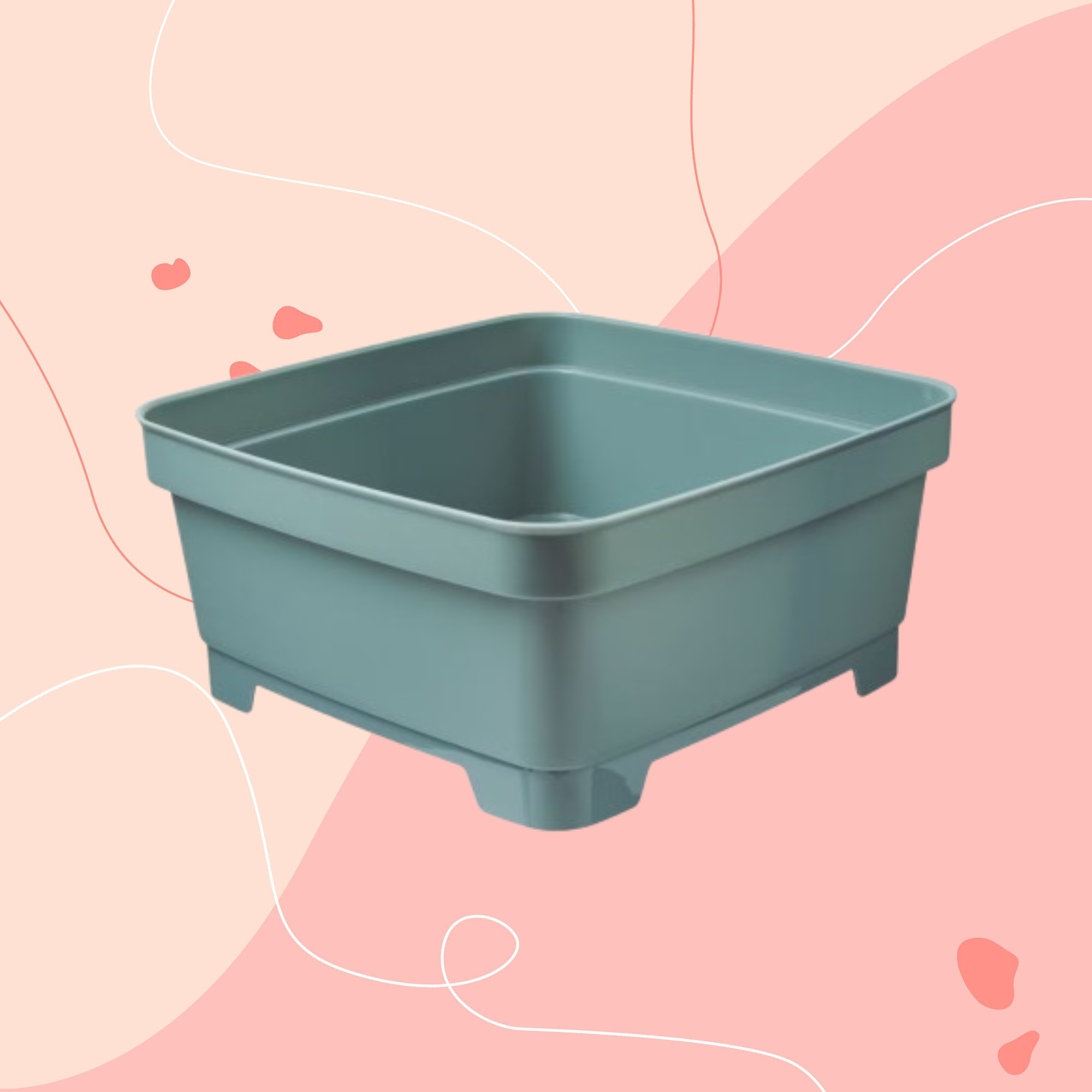 Aldi is releasing a budget alternative to the cult Joseph Joseph washing up bowl – it’s just £4.99
Aldi is releasing a budget alternative to the cult Joseph Joseph washing up bowl – it’s just £4.99The Joseph Joseph washing up bowl is an Ideal Home favourite - now we can't wait to try Aldi's alternative
By Kezia Reynolds
-
 I just bought my first home, and this £10 buy was the very first thing I bought for it to make it feel warmer and secure
I just bought my first home, and this £10 buy was the very first thing I bought for it to make it feel warmer and secureIf I did it all again, this would still be my very first buy
By Rebecca Knight
-
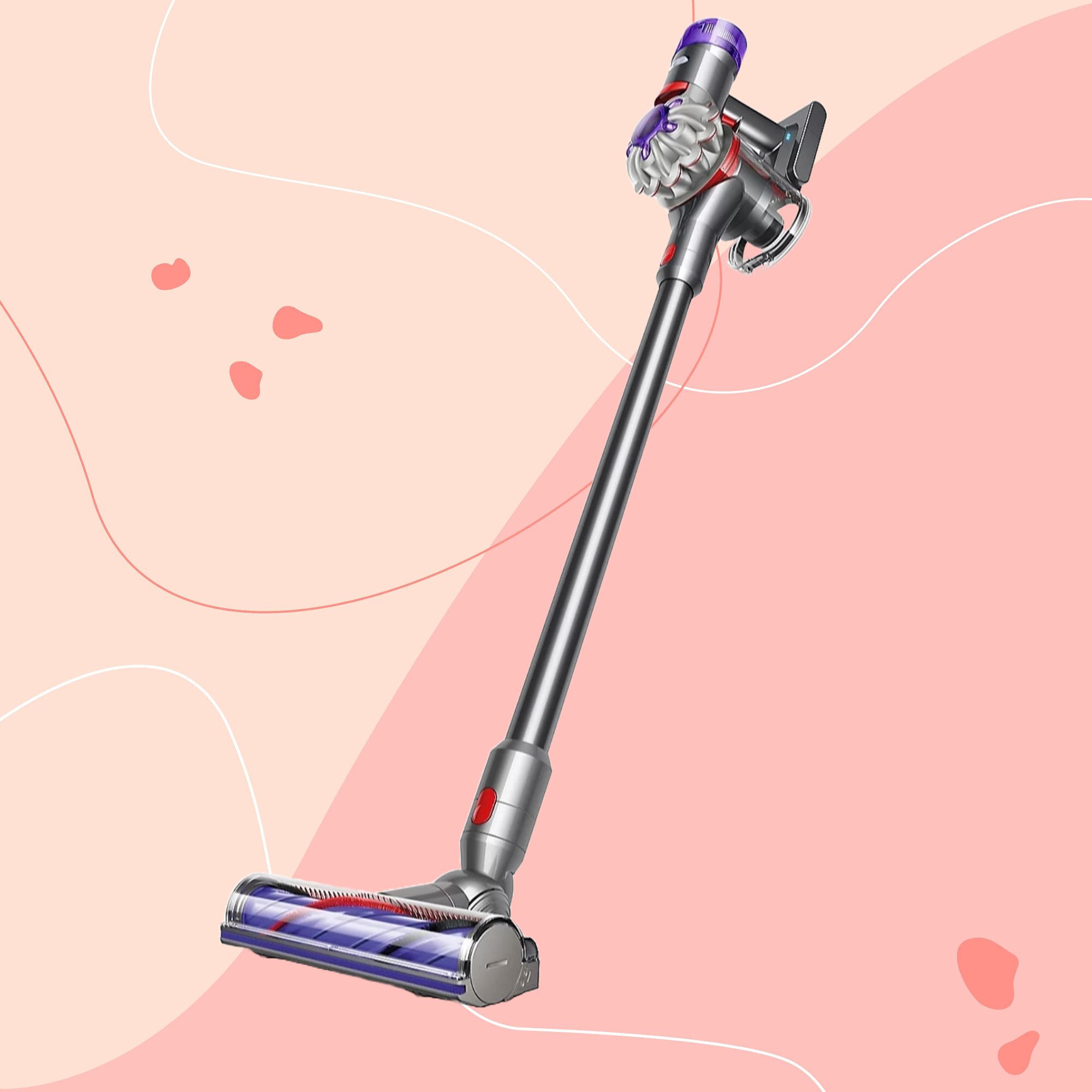 It’s normally impossible to find a Dyson vacuum for under £250 — but QVC has slashed the price of their bestselling models for a limited time
It’s normally impossible to find a Dyson vacuum for under £250 — but QVC has slashed the price of their bestselling models for a limited timeRun don’t walk to pick up the brand’s bestselling model for under £230 before it sells out
By Lauren Bradbury
-
 Catherine Zeta-Jones has revealed the cleaning product she swears by to keep her home fresh - and it’s just £8 on Amazon
Catherine Zeta-Jones has revealed the cleaning product she swears by to keep her home fresh - and it’s just £8 on Amazon'I use it on my counters. I use it on my walls. I use it on my doors. When I smell it, I know my house is clean.'
By Kezia Reynolds
-
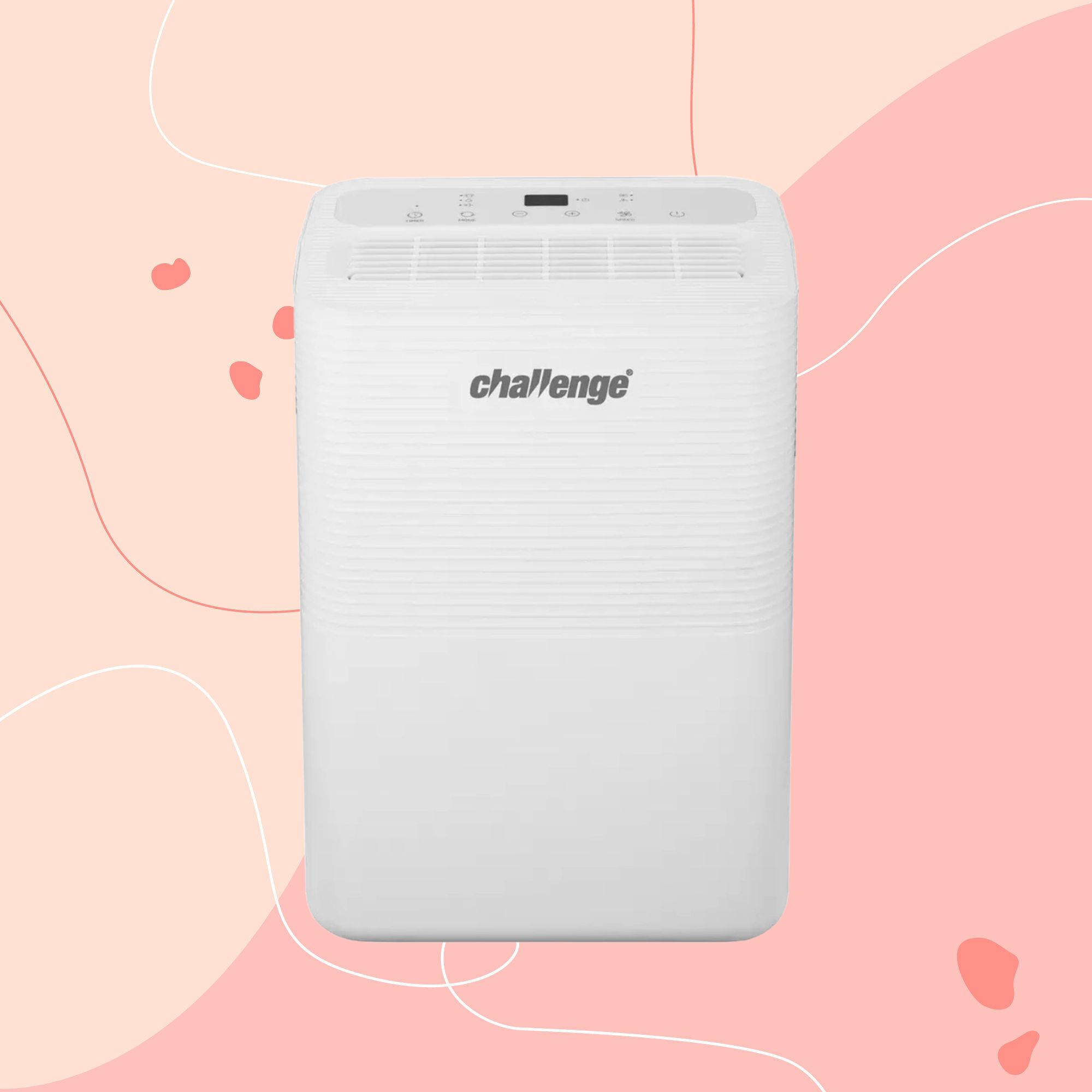 I tested the 12L Challenge dehumidifier in my damp Victorian home over winter — I haven’t spotted any signs of mould for the first time in five years
I tested the 12L Challenge dehumidifier in my damp Victorian home over winter — I haven’t spotted any signs of mould for the first time in five yearsThe Challenge 12L dehumidifier doesn’t have too many bells and whistles, but I can already see the difference it’s made to my damp home
By Lauren Bradbury
-
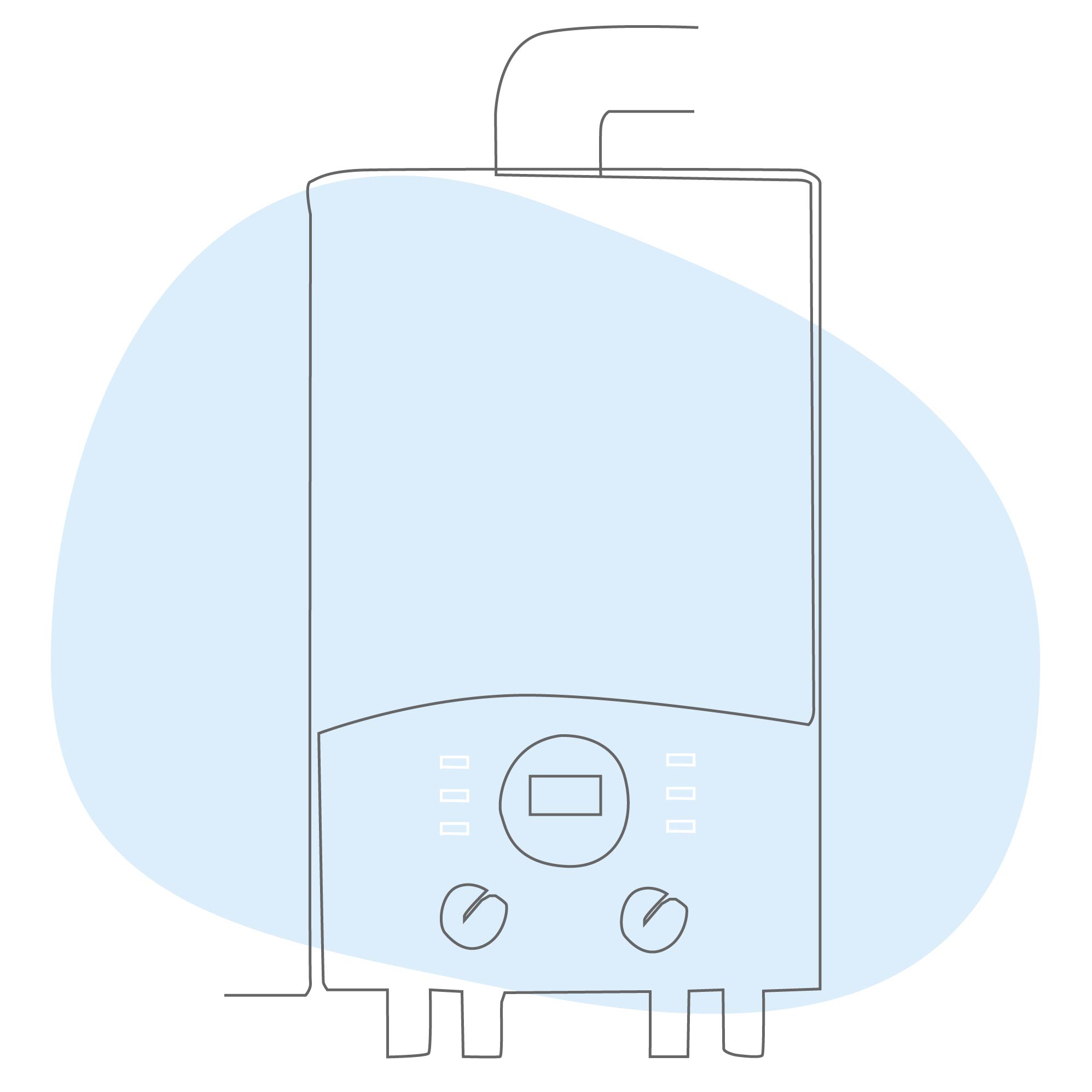 What is boiler flow temperature? Heating experts urge you to check yours now as you could be overpaying on your energy bills
What is boiler flow temperature? Heating experts urge you to check yours now as you could be overpaying on your energy billsTurning this little-known number down just a few degrees can result in some serious savings
By Lauren Bradbury
-
 Stacey Solomon has shared 5 nifty wardrobe storage hacks to make getting ready in the morning easier — and they're genius
Stacey Solomon has shared 5 nifty wardrobe storage hacks to make getting ready in the morning easier — and they're geniusThese five wardrobe storage hacks are a gamechanger
By Katie Sims
-
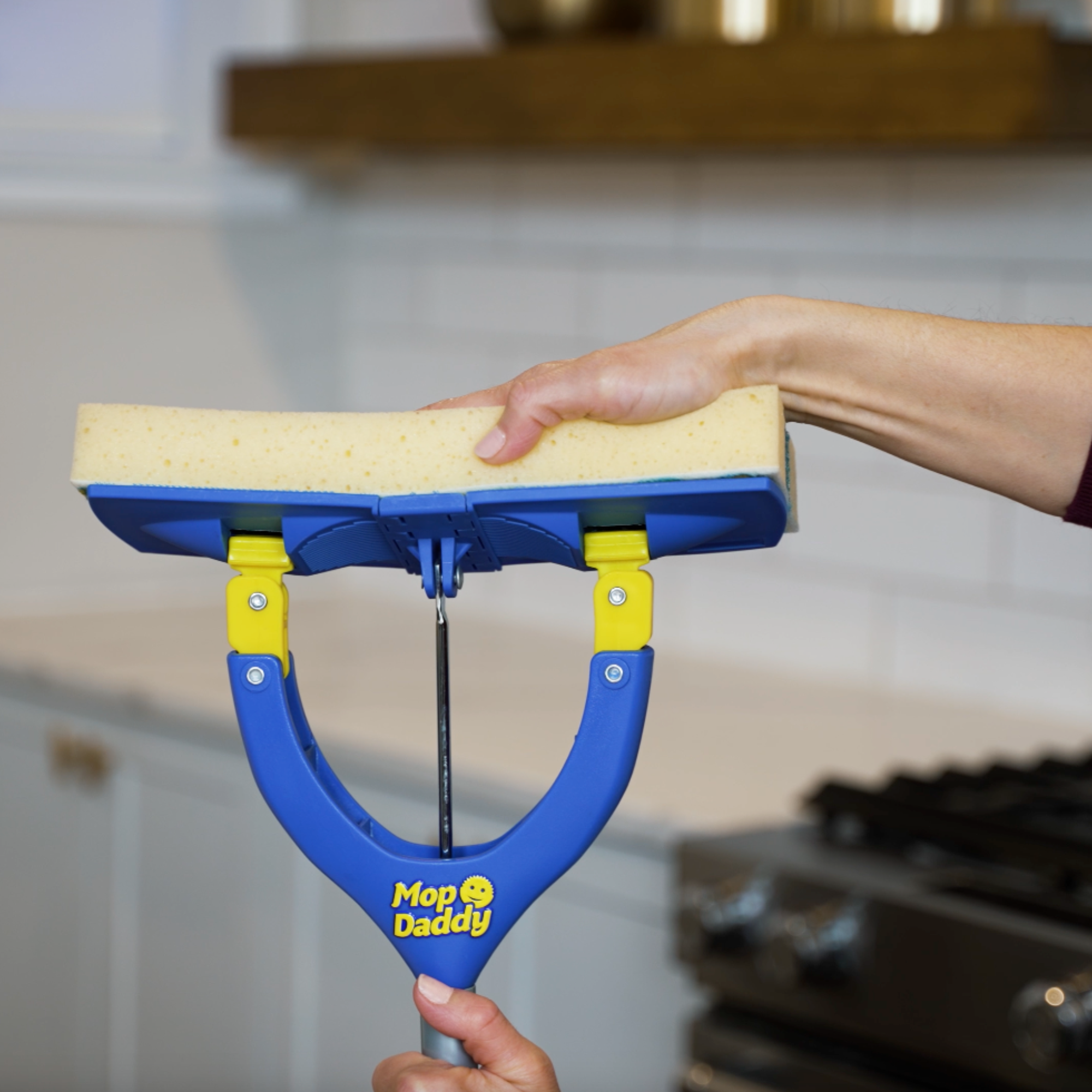 Cult cleaning brand Scrub Daddy has just launched a brand new butterfly mop — could it be the ultimate solution for banishing stubborn marks on your floor?
Cult cleaning brand Scrub Daddy has just launched a brand new butterfly mop — could it be the ultimate solution for banishing stubborn marks on your floor?We're obsessed with all things Scrub Daddy
By Kezia Reynolds